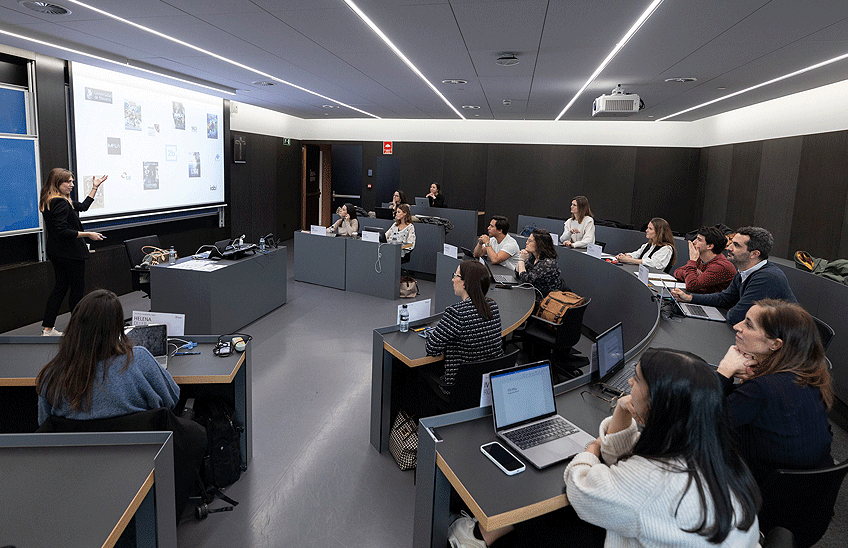The University, among the 300 best universities in the world in 'Economics', 'Law', 'Arts and Humanities', 'Health' and 'Social Sciences', according to Times Higher Education
From agreement with the ranking by areas, the university center of Navarra is first in Spain in 'Economics'.

PhotoManuelCastells/
26 | 10 | 2023
The University of Navarra ranks in five areas - Economics, Law, Arts and Humanities, Health and Social Sciences - among the top 300 universities in the world, according to the Times Higher Education ranking by area. In Spain, it is among the top five universities in six: Economics (1st), Law (3rd, tied with three other universities), Life Sciences (3rd, tied with five universities), Psychology (3rd, tied with seven other universities), Health (4th) and Social Sciences (4th, tied with three universities). In total, the University of Navarra is ranked in nine areas out of the 11 in the ranking.
Among this year's results, the University of Navarra ranked 80th in the world inBusiness and Economics, its best position ever. In the University, this area corresponds to the IESE centers, School of Economics and ISSA School of Applied Management. In Economics, it is also the best Spanish in international outreach (International Outlook) and in teaching (Teaching), and the second in the environment of research (Research Environment).
The ranking by THE areas has also evaluated positively the area Law, which corresponds to the Schools Law and Canon LawThe University is ranked 126-150th in the world, and third in Spain. In this area the University is the most international(International Outlook) in Spain according to the ranking and the third in quality of the research (Research Quality).
As for the rest of the areas, the University also ranks in the top 201-250 in Arts and Humanities, and in Health; among the 251-300 in Social Sciences; and among the 301-400 in Life Sciences and Psychology. The University of Navarra enters the Education ranking for the second consecutive year, with a position of 401-500.
This Times Higher Education ranking, which has changed its methodology with respect to previous editions, uses 18 different indicators to evaluate five areas of university performance: teaching, environment of research, quality of research, international perspective and industry. To be classified in the ranking, a minimum of academic production (different for each area) and a relevant issue of professors in each area.




